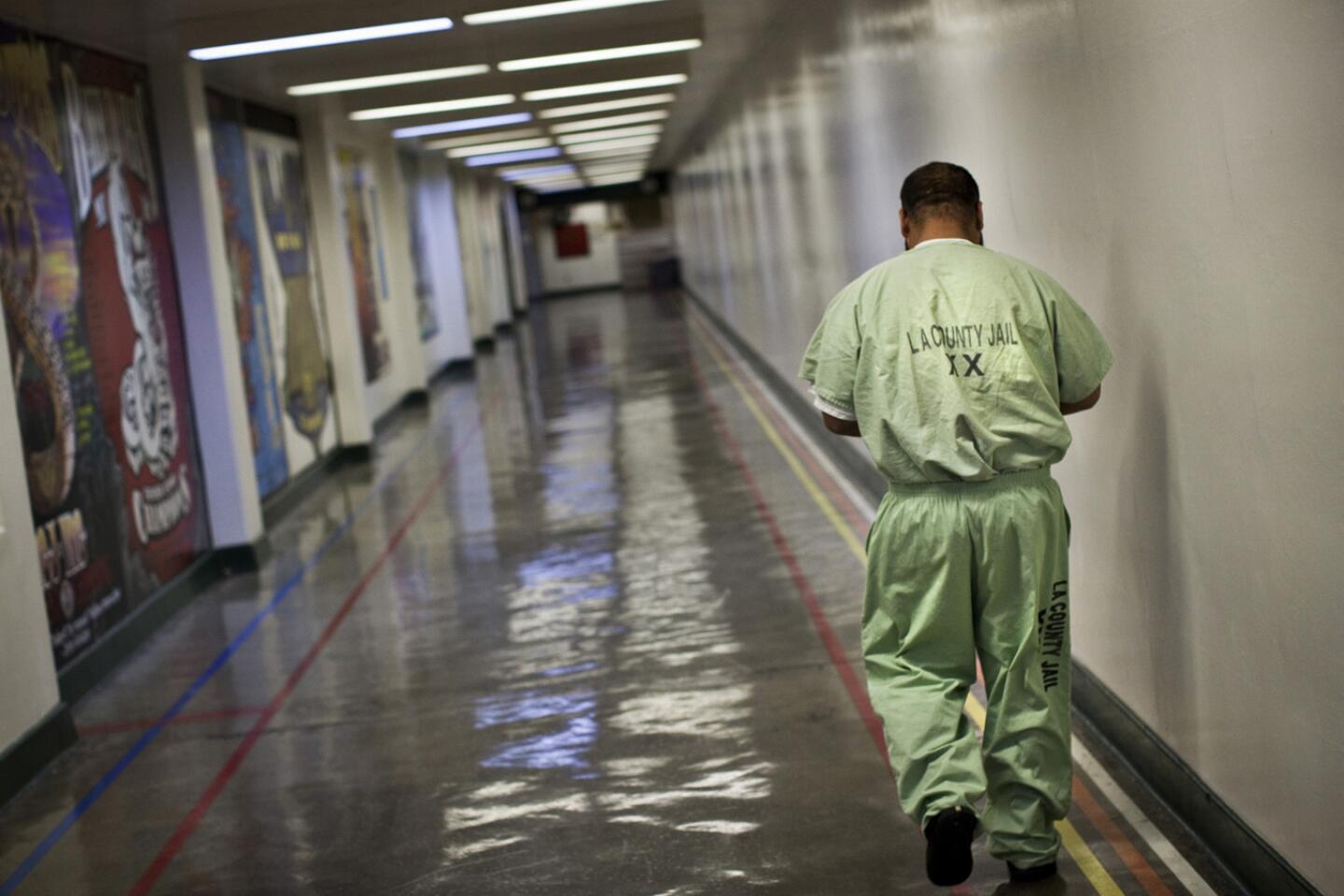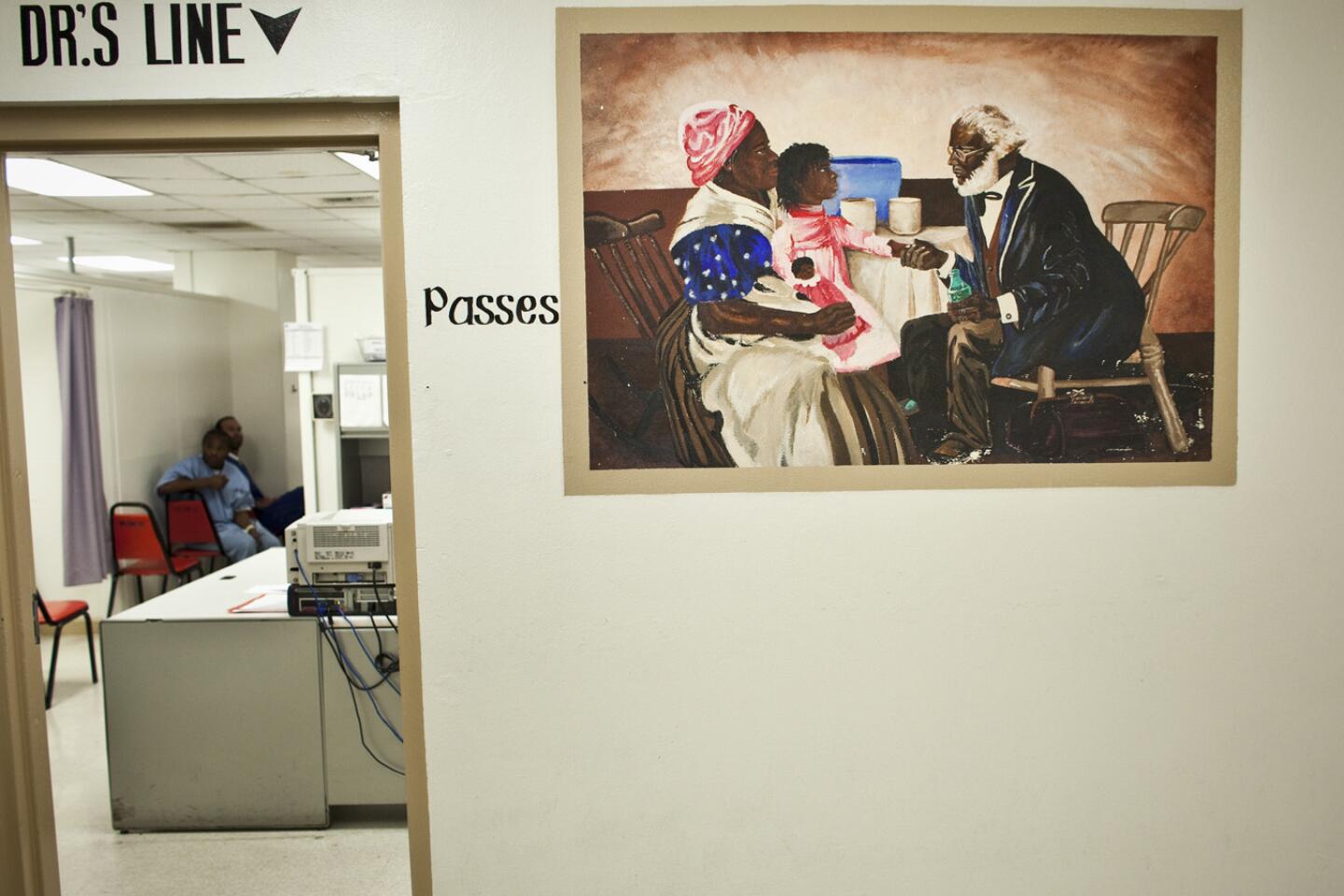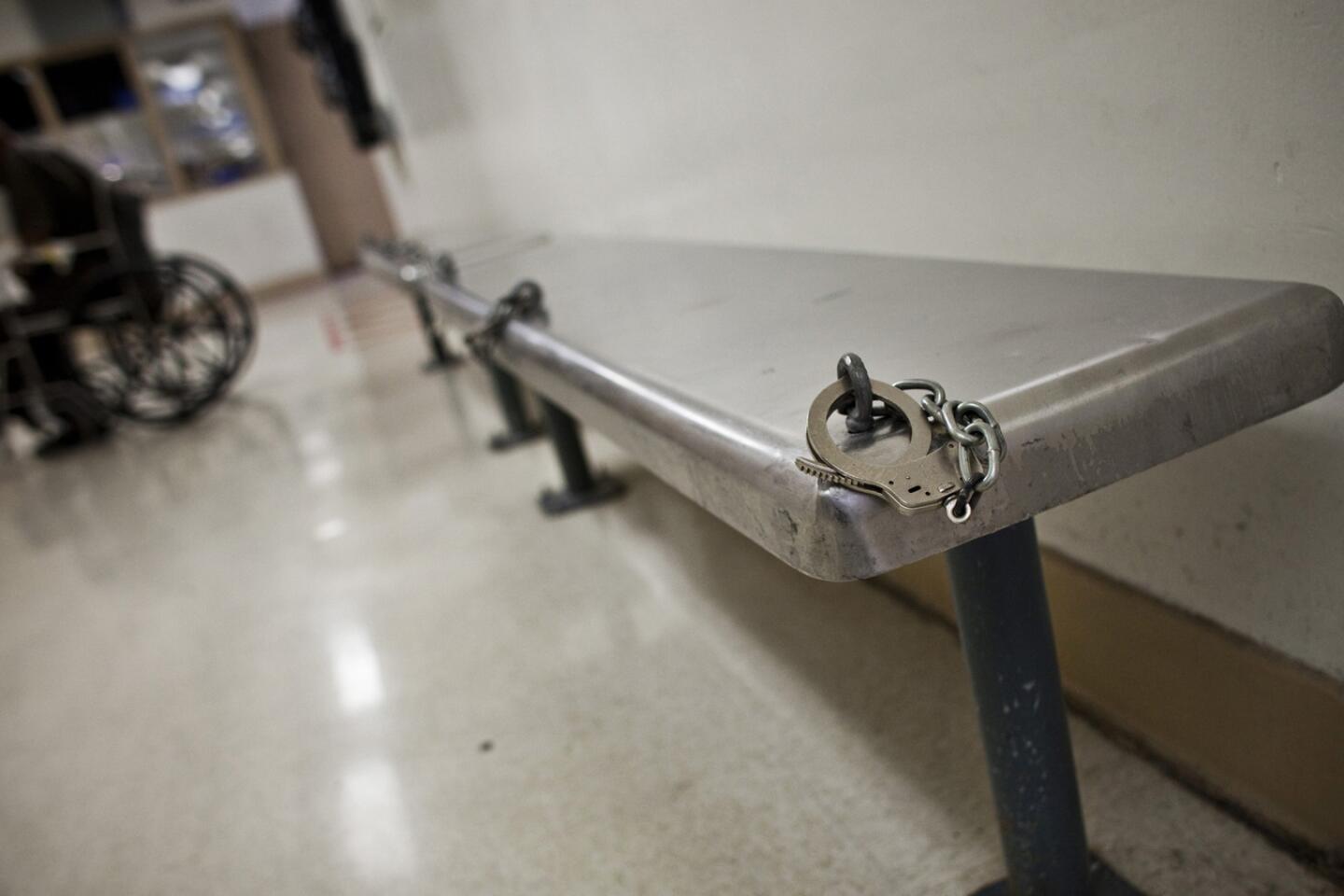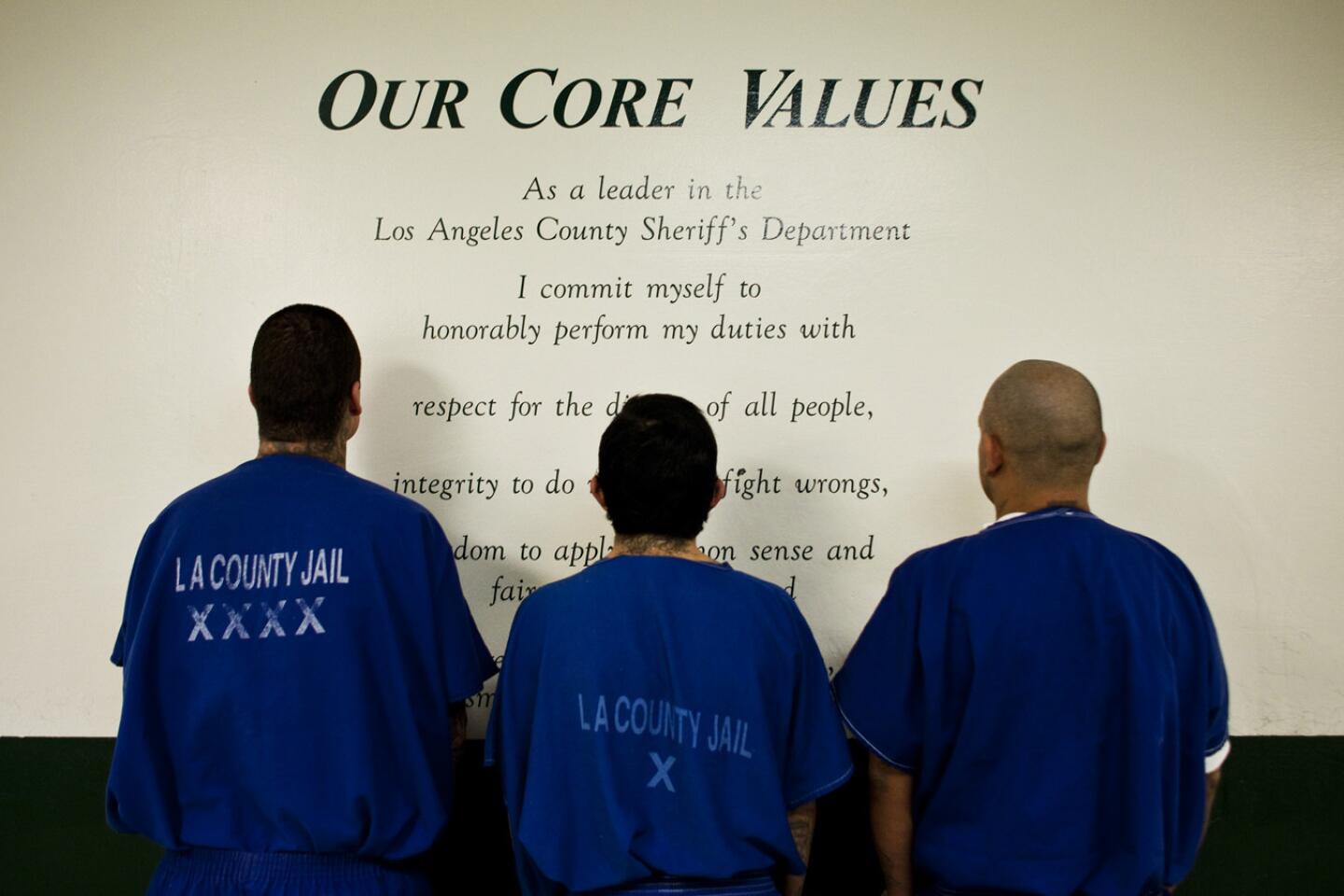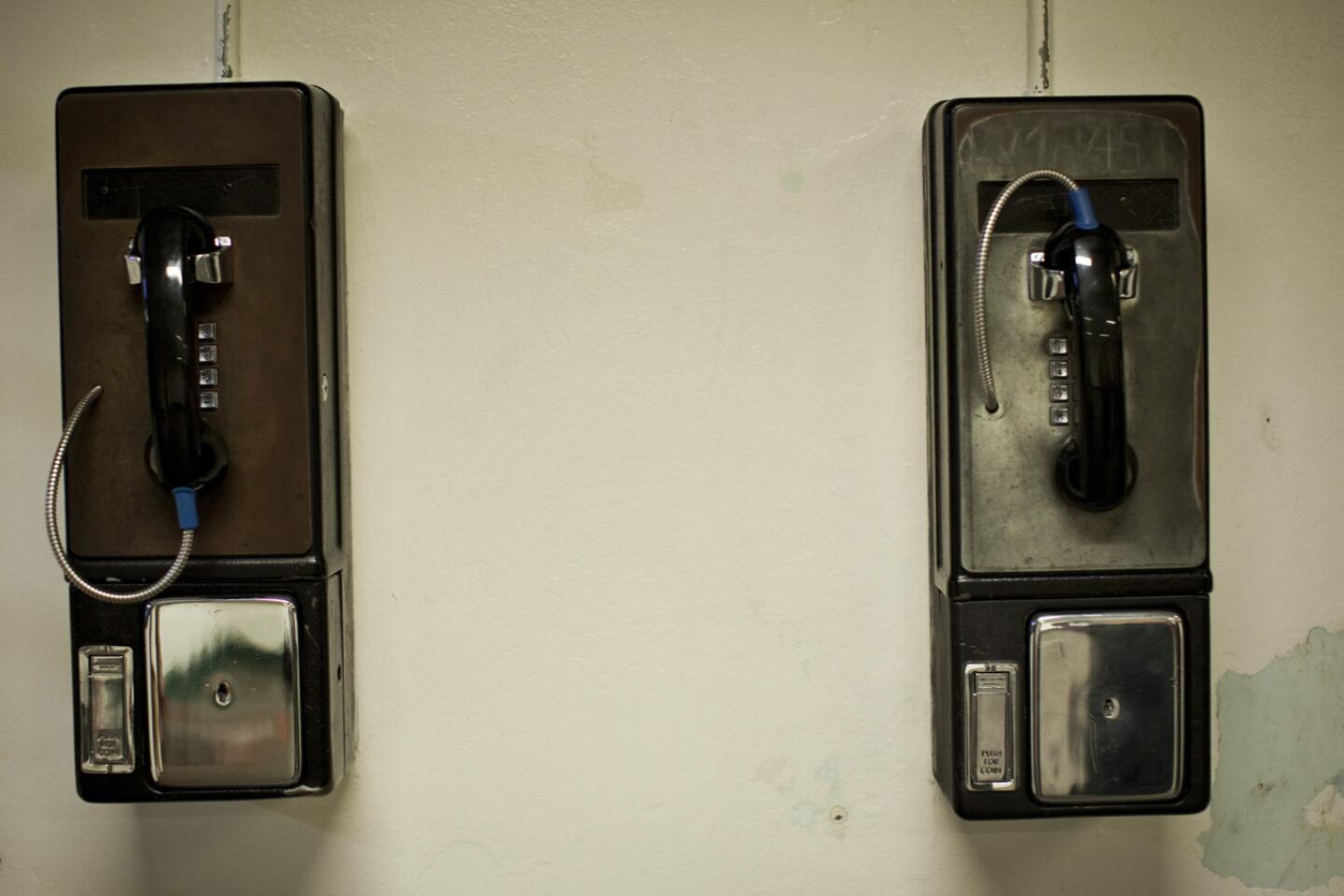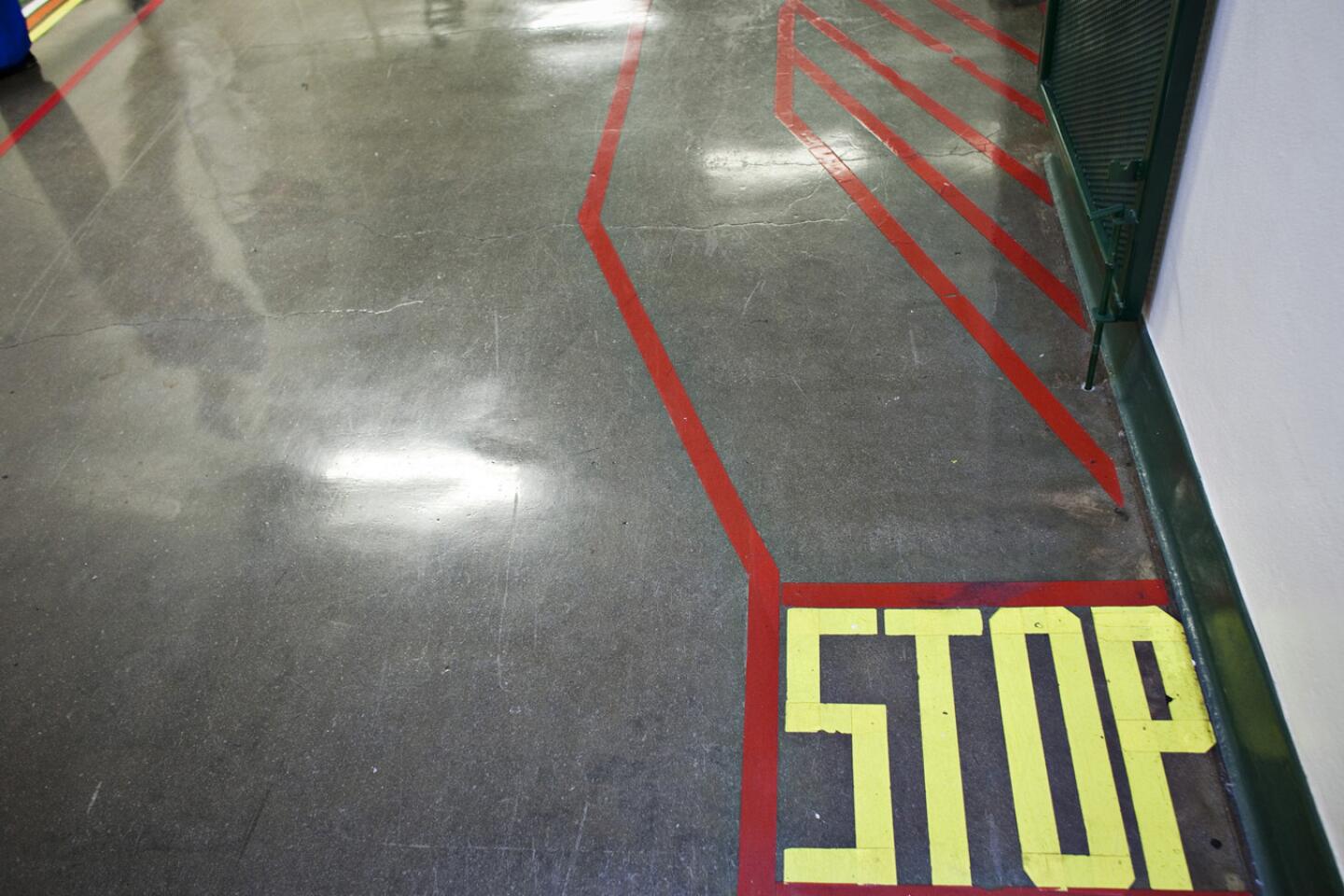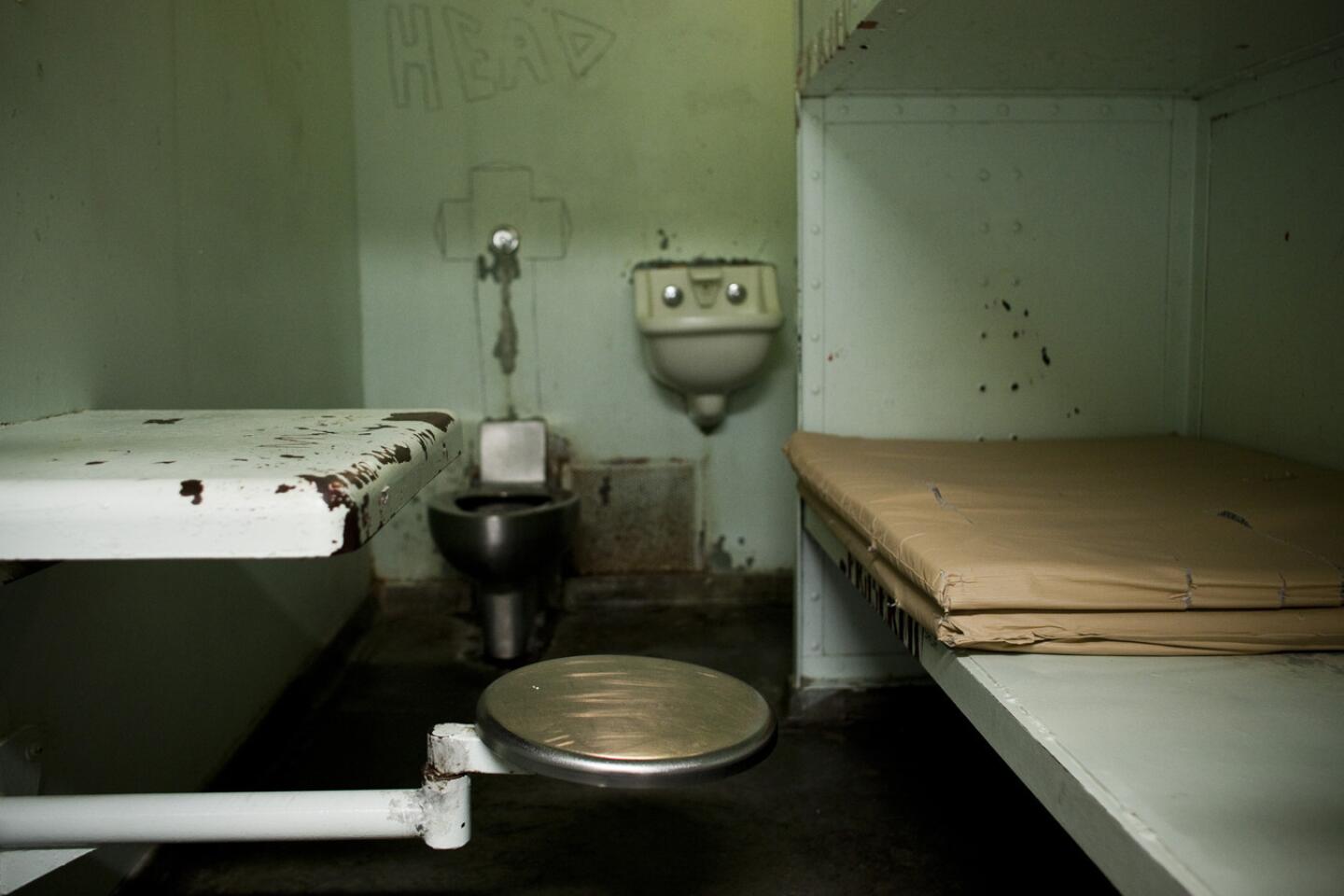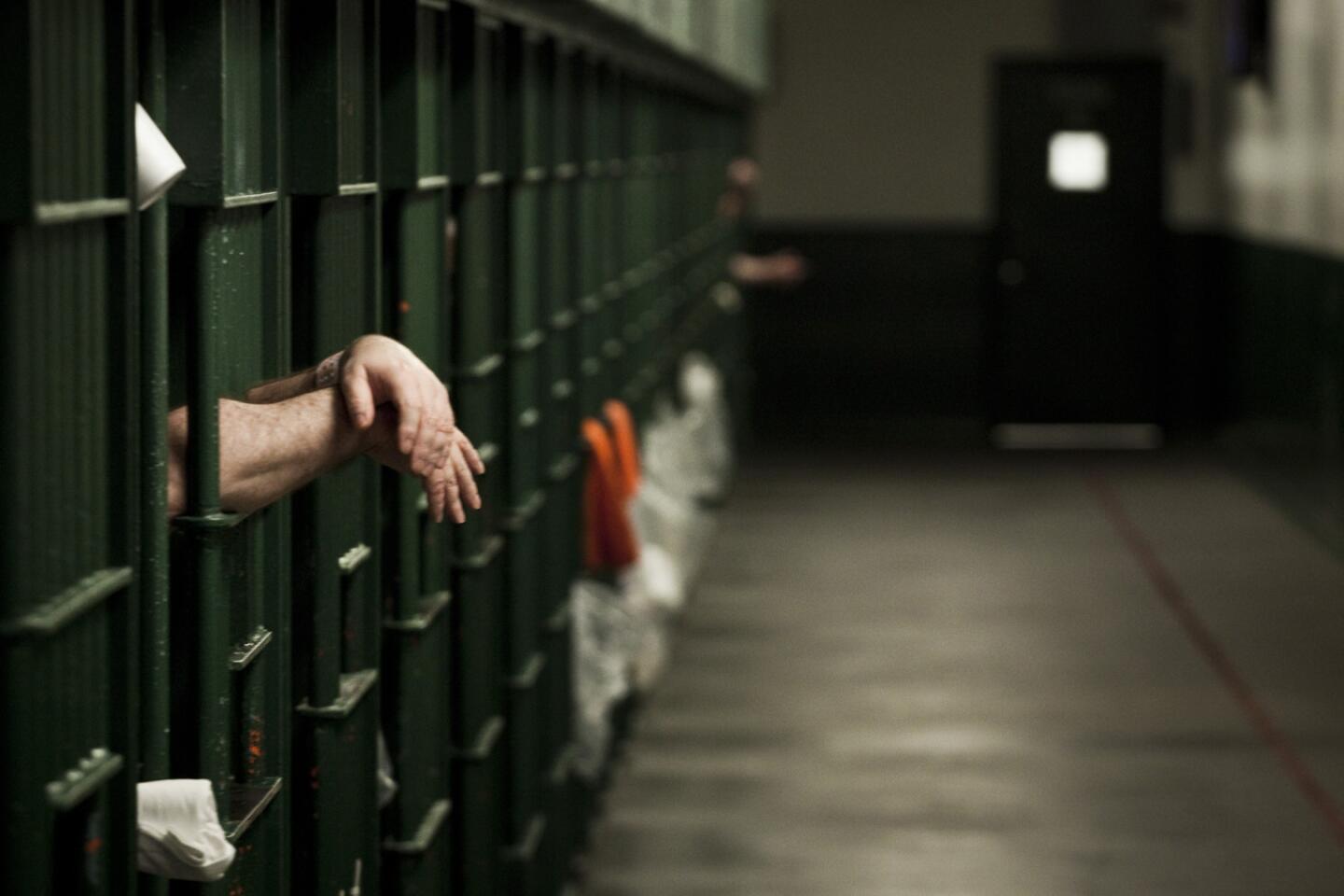Toughest inmates guarded by some of least-experienced jailers
- Share via
Sheriff’s Deputies David Aviles and Salvador Esquivel Jr. started their careers as rookies on the “3000 floor” of Los Angeles County Men’s Central Jail, a place reserved for the most dangerous inmates.
Along the dimly lighted hallway of cramped cells on the floor, suspected killers and notorious gang leaders peer out from behind the bars. Many face a lifetime in prison and have learned to survive in a confined and ruthless world. They fashion makeshift knives from toothbrushes and sharp spears from ripped magazines.
During their early years guarding the 3000 floor, Aviles and Esquivel racked up some of the highest numbers of force incidents at the jail, according to confidential documents from 2009 reviewed by The Times. Aviles used force on inmates 19 times during more than 3 ½ years. Esquivel had 27 force incidents over four years, including one suspension in 2007 for excessive force, one memo states.
The documents show that the Sheriff’s Department had some of its least experienced jailers handling its most hardened inmates, creating a volatile mix that resulted in more frequent clashes between deputies and inmates on the 3000 floor than in any other part of the largest jail system in the nation.
While deputies at Men’s Central had 31 months of experience on average, those assigned to 3000 — the jail’s third floor — had only 20 months.
The floor drew public scrutiny last year when The Times reported that a fight broke out between a group of third-floor deputies and other jailers at a department Christmas party. After the brawl, sheriff’s officials said deputies on the floor had formed an aggressive clique whose members flashed gang-like three-finger hand signs.
According to the documents, officials suspected third-floor deputies of targeting a co-worker before. In that case, a rookie accused the floor’s jailers of harassing him with insults, hang-up calls and phony instructions over his radio. After his initial complaint, the rookie asked his supervisors to drop the matter because he was worried the harassing deputies would only make things worse.
The new revelations come as the FBI is investigating allegations of inmate abuse and other deputy misconduct in the jails. As criticism has mounted about his handling of the jails, Sheriff Lee Baca in recent weeks has said he’s now open to ending the practice of starting all new recruits as jail guards.
But the memos show that Sheriff’s Department brass had warned as early as September 2009 that sending new deputies onto the 3000 floor was problematic.
In citing Aviles and Esquivel, the memo said the deputies were “not allowed to obtain sufficient job experience before working with career criminal” inmates whose violence had earned them the highest level of jail security classification.
Aviles and Esquivel could not be reached for comment, and the department declined to make them available.
Attorney Richard A. Shinee, the general counsel for the union of deputy sheriffs, criticized the department for assigning new deputies to the 3000 floor.
“It’s fundamentally unfair to place deputies in that situation right out of the academy,” he said in an interview. “This is clearly a management issue.”
Cmdr. James Hellmold, part of a task force recently assembled to implement jail reforms, said he doesn’t know of any changes made in staffing or supervision as a result of the memos. But he said they would be considered now. “We’re doing our assessment,” he said. “Part of that assessment includes any input or recommendations that have been made in the past.”
In recent months, sheriff’s officials have moved toward reforms geared at dealing with problems on the 3000 floor and in other areas of the jail. Elaborate monikers representing particular jail floors or patrol stations on the walls inside Men’s Central have been painted over. Deputies are being rotated to new assignments every few months to keep cliques from gelling. And officials are adding 19 more sergeants to increase supervision of deputies at Men’s Central.
In interviews with The Times, deputies who work the floor said they felt unfairly maligned by reports of brutality in the jail, accusing inmates of exaggerating the force. Deputies, many of whom want to leave the jail for patrol, recounted dealing with inmates willing to carry razor blades in their rectums and attack other inmates and jailers to earn a special status.
“We’re not here to punish these guys. We’re here to baby-sit them,” said one, a five-year veteran of the department.
The deputies denied the existence of a 3000 clique, describing the behavior of colleagues at the Christmas party as “stupid” and fueled by alcohol. The floor’s employees, they said, take pride in their jobs and have built an important bond while working in dangerous conditions. The deputies, however, acknowledged that working the dangerous floor without gaining experience in other parts of the jail would have left them ill-equipped.
A list of the most frequent users of force at Men’s Central included 17 deputies from the third floor, a figure that surpassed any other section of the jail and represented roughly 40% of all deputies on the list.
Among them were Jeffrey Rivera, who used force on inmates 18 times in two years, and Hernan Delgado and Christopher Hernandez, who each made the list with 12 incidents. The three were part of the group of third-floor deputies accused of fighting at the holiday party last year at a Montebello banquet hall.
Shinee, the attorney for the Assn. for Los Angeles Deputy Sheriffs, said there was no connection between what happened at the party and the force the deputies use at work. He said deputies who deal with dangerous inmates each day are likely to have to use force.
“They are … charged with securing very violent people, and that requires them to use force,” Shinee said. “It doesn’t mean that the degree of force or the frequency of force is inappropriate.”
Throughout the night of the holiday party fight, deputies assigned to the third floor were hassled about being slow in moving inmates throughout the jail. As the evening wound down, one deputy who didn’t work the floor apparently called out to the 3000 jailers, again accusing them of being slow.
A confrontation erupted in which third-floor deputies were accused of punching and kicking two other deputies multiple times, officials said. A female deputy who tried to break up the violence was allegedly punched in the face.
In response, the department moved to fire six 3000 floor deputies after the incident in what was described as the largest termination from one incident in recent memory. The deputies contend that they were the ones attacked and acted in self-defense.
Two of the injured deputies sued, accusing sheriff’s officials of fostering gang-like behavior on 3000.
Among the third-floor deputies identified as frequently using force is David Ortega, who was charged in 2008 with assault and battery in an off-duty confrontation at a bar. Ortega pleaded no contest to disturbing the peace by fighting and was placed on probation for a year. The Sheriff’s Department demoted him to custody assistant, moving him out of Men’s Central but allowing him to continue to work in custody.
Ortega was one of six third-floor jailers sued in July by an inmate who accused them of an unprovoked attack. In his lawsuit, Evans Tutt alleged that days after he complained about poor conditions at the jail, he was surrounded by the deputies, who proceeded to beat him and stun him with a Taser.
Sheriff’s officials accused Tutt of provoking the fight and denied that deputies used excessive force. Ortega could not be reached for comment.
More to Read
Sign up for Essential California
The most important California stories and recommendations in your inbox every morning.
You may occasionally receive promotional content from the Los Angeles Times.
